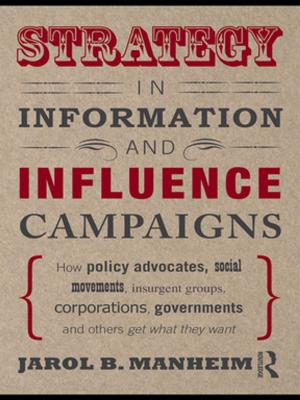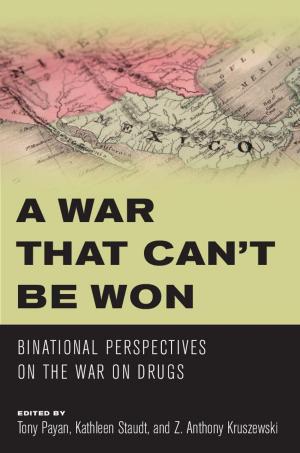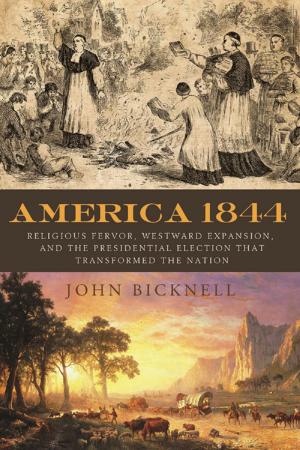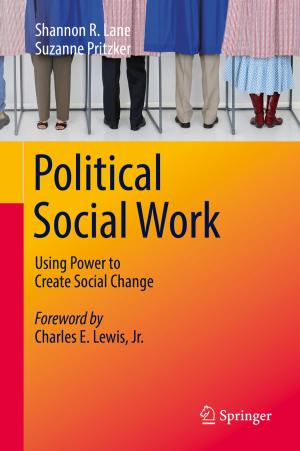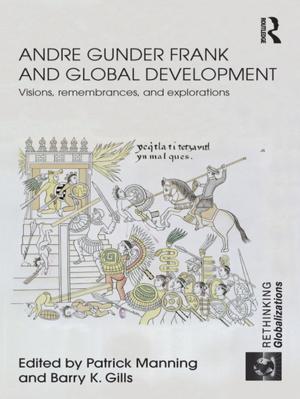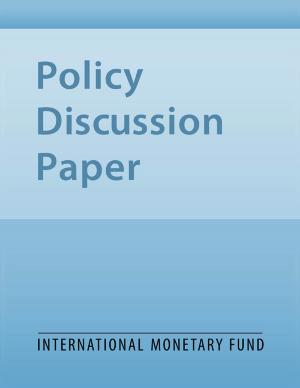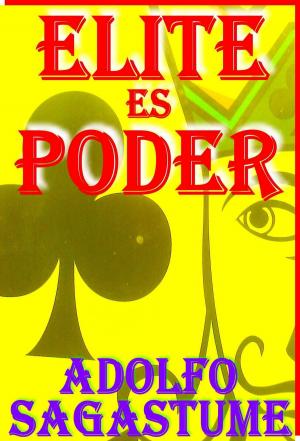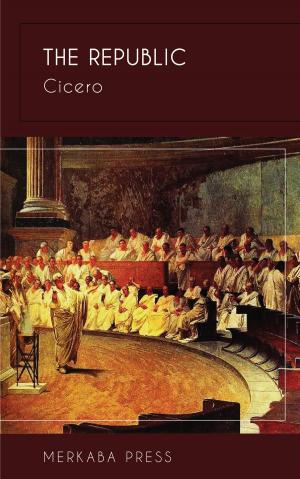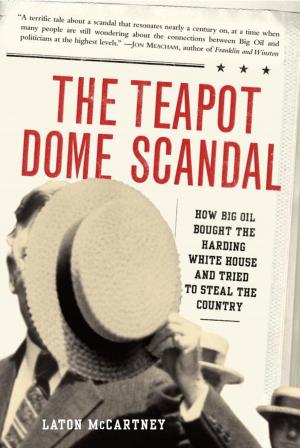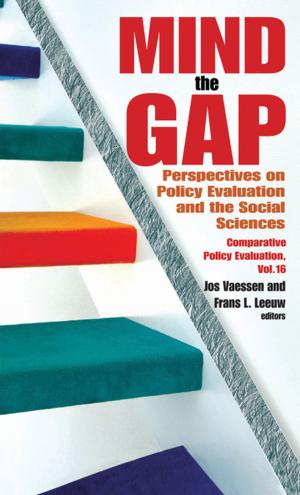A Toppled Labor Giant: Arthur Griffith: NSW’s Revolutionary Minister for Public Works & Education
Nonfiction, History, Australia & Oceania, Biography & Memoir, Political| Author: | Morris Graham | ISBN: | 9781370123346 |
| Publisher: | Morris Graham | Publication: | March 19, 2017 |
| Imprint: | Smashwords Edition | Language: | English |
| Author: | Morris Graham |
| ISBN: | 9781370123346 |
| Publisher: | Morris Graham |
| Publication: | March 19, 2017 |
| Imprint: | Smashwords Edition |
| Language: | English |
Arthur Hill Griffith (1862-1946) was a rare species: a noteworthy Minister of the Crown in an Australian state parliament. He has immortality of a kind in the Riverina city named after him and since 1997 in the name Griffith-Hack, giving a firm of patent attorneys an ancestry stretching back to the firm of patent agents formed by Griffith in 1897.
Born in Ireland, the ninth of 11 children, Griffith left Melbourne in 1883 and came to Sydney with nothing more than family pride and self-confidence. During ten years of teaching at Sydney Grammar School he was awarded the Medal of the National Shipwreck Society of NSW for bravery, became a convert to socialism, which he later developed as a system of state ownership of essential enterprises, and joined the newly-formed Labor Party. He gained recognition within the party and notoriety at Grammar after publishing The Labor Platform: an exposition.
In 1894 Griffith won the new seat of Waratah in Newcastle. In parliament he was an ideas factory, constantly moving amendments to bills and even having a few of his own bills enacted. In the Labor Party he was popularly seen as one of its giants and he claimed to have influenced every one of its policies.
Widely read, though not the university graduate everyone assumed he was, Griffith had a vision for Australia and NSW: a democratic White Australia protected by British and American naval power; a unitary, not a federal, system; a uni-cameral parliament under a constitution able to be changed as the nation developed; replacement of the states by local government; closer settlement in NSW with emphasis on the north coast rather than the drought-prone west; water conservation; generous bank loans from a state bank to establish city families on small farms; and progress based on free education from primary school to university.
Griffith took uncompromisingly fearless positions on matters of principle, regardless of the cost, opposing the undemocratic power of the Senate in the Federal Constitution and attacking British policy in the Boer War.
In the revolutionary first Labor Government in NSW in 1910 Griffith was the most revolutionary minister, in Public Works and local government 1910-15 and Public Instruction, which he changed to Education, 1915-16. He became the principal enemy of the Liberal Party, business and the press. His opponents launched continual no-confidence motions charging him with extravagance and corruption.
Griffith offered his Department’s workers the best wages and conditions, including the unheard of provision of paid annual holidays and the most generous workers’ compensation for injury, but demanded hard work in return, making enemies in the unions for his legalistic implementation of the arbitration system. Despite criticisms, the credit went to Griffith for Labor’s unexpected re-election in 1913. He triumphantly declared that NSW would never see another conservative government.
Griffith was domestically, as well as politically, unconventional, leading a secret double life. He apparently had expected to be a family patriarch as his father had been. Married in 1895, but with only the one child, born in 1905, he set up another woman on a farm, fathered her two children, and divided his life between Sydney and the Blue Mountains.
Griffith became a political casualty of the Great War, expelled from the NSW party for supporting conscription. After unsuccessful appeals for readmission to the party he was readmitted in 1930 only to have the decision reversed less than a week later. He became active in the anti-Lang Federal ALP being rebuilt by John Curtin, even standing unsuccessfully as the party’s candidate in his old state seat of Waratah in 1932 and the federal seat of Gwydir in 1934 at the age of 72. He continued to be a commentator on current and past events in letters and articles. Such a significant political figure deserves to be politically memorable.
Arthur Hill Griffith (1862-1946) was a rare species: a noteworthy Minister of the Crown in an Australian state parliament. He has immortality of a kind in the Riverina city named after him and since 1997 in the name Griffith-Hack, giving a firm of patent attorneys an ancestry stretching back to the firm of patent agents formed by Griffith in 1897.
Born in Ireland, the ninth of 11 children, Griffith left Melbourne in 1883 and came to Sydney with nothing more than family pride and self-confidence. During ten years of teaching at Sydney Grammar School he was awarded the Medal of the National Shipwreck Society of NSW for bravery, became a convert to socialism, which he later developed as a system of state ownership of essential enterprises, and joined the newly-formed Labor Party. He gained recognition within the party and notoriety at Grammar after publishing The Labor Platform: an exposition.
In 1894 Griffith won the new seat of Waratah in Newcastle. In parliament he was an ideas factory, constantly moving amendments to bills and even having a few of his own bills enacted. In the Labor Party he was popularly seen as one of its giants and he claimed to have influenced every one of its policies.
Widely read, though not the university graduate everyone assumed he was, Griffith had a vision for Australia and NSW: a democratic White Australia protected by British and American naval power; a unitary, not a federal, system; a uni-cameral parliament under a constitution able to be changed as the nation developed; replacement of the states by local government; closer settlement in NSW with emphasis on the north coast rather than the drought-prone west; water conservation; generous bank loans from a state bank to establish city families on small farms; and progress based on free education from primary school to university.
Griffith took uncompromisingly fearless positions on matters of principle, regardless of the cost, opposing the undemocratic power of the Senate in the Federal Constitution and attacking British policy in the Boer War.
In the revolutionary first Labor Government in NSW in 1910 Griffith was the most revolutionary minister, in Public Works and local government 1910-15 and Public Instruction, which he changed to Education, 1915-16. He became the principal enemy of the Liberal Party, business and the press. His opponents launched continual no-confidence motions charging him with extravagance and corruption.
Griffith offered his Department’s workers the best wages and conditions, including the unheard of provision of paid annual holidays and the most generous workers’ compensation for injury, but demanded hard work in return, making enemies in the unions for his legalistic implementation of the arbitration system. Despite criticisms, the credit went to Griffith for Labor’s unexpected re-election in 1913. He triumphantly declared that NSW would never see another conservative government.
Griffith was domestically, as well as politically, unconventional, leading a secret double life. He apparently had expected to be a family patriarch as his father had been. Married in 1895, but with only the one child, born in 1905, he set up another woman on a farm, fathered her two children, and divided his life between Sydney and the Blue Mountains.
Griffith became a political casualty of the Great War, expelled from the NSW party for supporting conscription. After unsuccessful appeals for readmission to the party he was readmitted in 1930 only to have the decision reversed less than a week later. He became active in the anti-Lang Federal ALP being rebuilt by John Curtin, even standing unsuccessfully as the party’s candidate in his old state seat of Waratah in 1932 and the federal seat of Gwydir in 1934 at the age of 72. He continued to be a commentator on current and past events in letters and articles. Such a significant political figure deserves to be politically memorable.


